Trending
Opinion: How will Project 2025 impact game developers?
The Heritage Foundation's manifesto for the possible next administration could do great harm to many, including large portions of the game development community.
Let's take a look at how the Western came to be... and all the baggage that comes with it.

The Foglands by Well Told Entertainment comes to PS5, PSVR2, and Quest 2 later this year.
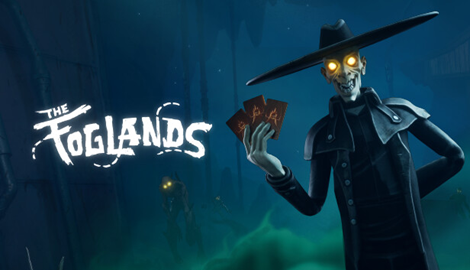
The Foglands is an upcoming atmospheric roguelike that puts you at the reins of a tall tale. In a mysterious world covered with thick Fog, humans have been driven into sparsely-populated strongholds to survive. Runners are the brave few who step outside the Hold to scavenge for materials and resources... that is, if they make it back. You play as Jim Womack, a fresh recruit for the Runners who makes a deal with a mysterious Stranger when a great and terrible creature awakens in the Fog.
But we at Well Told Entertainment also went on a journey while making this game: we set out to make a Western, but throughout our research and collaboration, we found The Foglands to be much more at home in the subgenre of the anti-Western. But don't let the name fool you: the "anti-"doesn't mean it's the polar opposite - it's still very much a Western! However, since the anti-Western is a response: let's take a look at how the Western came to be... and all the baggage that comes with it.
How the history of the United States and the Western are intertwined, but not synonymous.
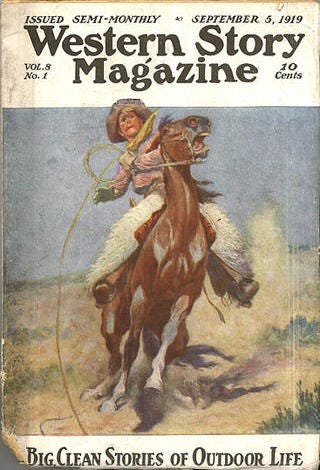
The Western might make you think of cowboys, gunslingers, outlaws, and shootouts. But what if it comes from somewhere else? (For example: the World Wars, or a shirtless, hunky Scotsman posing in front of a Highland backdrop?)
.jpg?width=700&auto=webp&quality=80&disable=upscale)
The Western is a genre about tension: between individuals and wider cultures, between the individual and the landscape, between the law-abiding and the outlaw. Its no-nonsense handling of themes like death, suffering, and existentialism were validating to post-War audiences. With the rise of radio dramas in the 20s, Hollywood in the 40s, and television in the 50s, the Western transitioned from "genre fiction" to mainstream success. When you think of Western titles, you're likely thinking of things from this "Golden Age," such as High Noon (1952), Butch Cassidy and the Sundance Kid (1969), or The Lone Ranger (1949-1957).
But the Western as Hollywood knew it was a "period piece," a version of the American West that never existed. This fictionalized version was popular with its primarily White, American audience, but it sometimes completely erased or offensively depicted entire populations and completely chose to ignore (or even glorify) some unfortunate historical elements. But this wouldn't go unchallenged.
The emergence of a sub-genre for a new age.
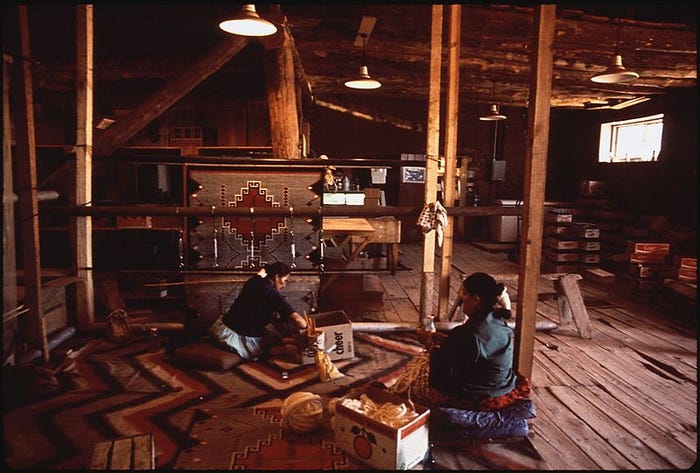
Between Indigenous people of many nations, White settlers from the eastern part of the country, Mexican ranchers, former slaves and members of the Black diaspora, and Chinese laborers: the West was much more diverse than it appeared on the silver screen. Women of all cultures, who are usually depicted as having domestic jobs, "soiled doves," or as damsels in distress, also historically held similar roles in the community as men. Opening up the range of the cast allows for new voices and new stories to enter this American genre's lexicon.
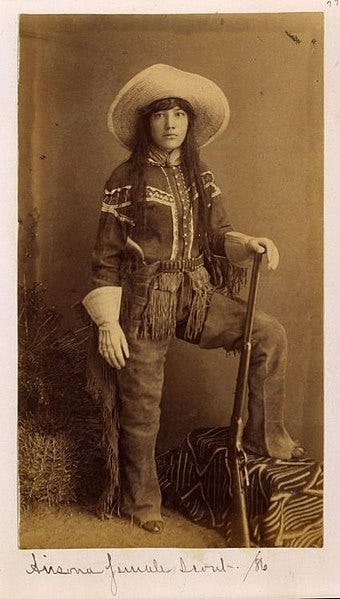
On Well Told's newest title.
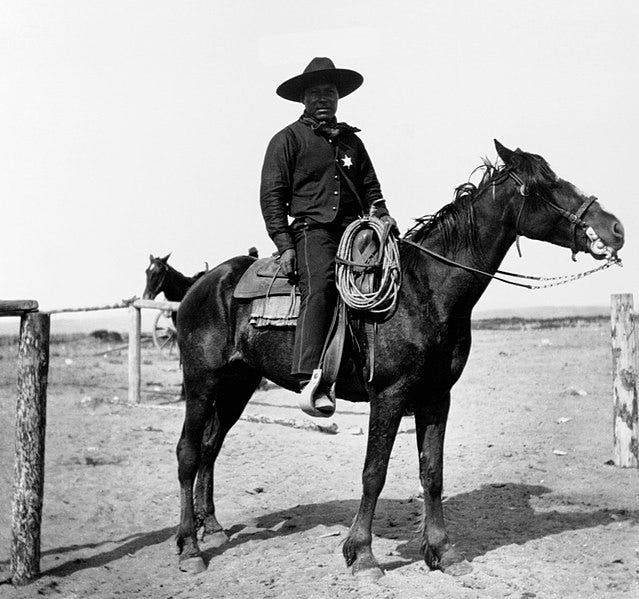
What can we say: video games, developers, and players all love Westerns! And some elements of the anti-Western are already present in some games of the genre, such as the Red Dead Redemption series and Fallout: New Vegas (2010). As games continue to evolve as an art form, it feels right that they intersect with the emerging anti-Western. Now, there is no such thing as a perfectly-written Western, or a Western that is perfectly "correct."
This is not to say that we did it "right." This is just how we did it.
The Foglands was originally a traditional Western: characterized by an individual honing their skills to exhibit dominance on the hostile, outside world. And sure, that's a great setup for a lot of survival crafting games - but Well Told is a narrative-driven studio at heart, and that just didn't have enough to say for us.
Two things really began to make themselves clear.
One: it's about opposition to systems. Roguelikes, and games in general, are built on systems. They're about patterns - they're about "loops." Much like in real life, the characters' agency is defined by structures beyond their control. Structures that we - the developers - decide upon on Zoom calls and in Unreal blueprints. It became clear to us that just how the epitome of the Western is to clash with the Western... we had to make a Roguelike that would ultimately turn inward on itself. A roguelike that has tension with the roguelike.
Our character of The Stranger, initially dreamed up as a whimsical, cowboy-Merlin-like figure, was the one who created the systems under which the characters clash. If he held the keys to how the characters got locked into their situation... it meant he held the secret of getting them out, too. We ended up building an anti-Western because we as a team decided we were going to paradoxically challenge the very systems that games are built on... and into.
And two: we neither can, nor should, attempt to reexamine the Western without…”
.gif?width=700&auto=webp&quality=80&disable=upscale)
And two: we neither can, nor should, attempt to reexamine the Western without input from Indigenous contributors. In fact, we wish we had done this more and earlier! Sure, those of us who are non-Native can research, but research simply cannot compare to the knowledge and understanding that comes with lived experience. As we worked with Indigenous and Black members of our team to approach the above idea of opposing systems, it became so clear to us that our story would feature community-driven restorative justice. Just as the Land Back movement fights for restoring Indigenous sovereignty, the key to restoring harmony in the Foglands lies in Native stewardship. But there's a lot of work to be done before any great monsters can properly be defeated...
What, you didn't think I was going to give it all away, did you? You'll just have to play to find out what happens! Like making any game, building The Foglands was a journey, and we're really pleased with the result. We love the Western, but we wanted to tell a new story: a story that looks back at the past and tries to do better for the future.
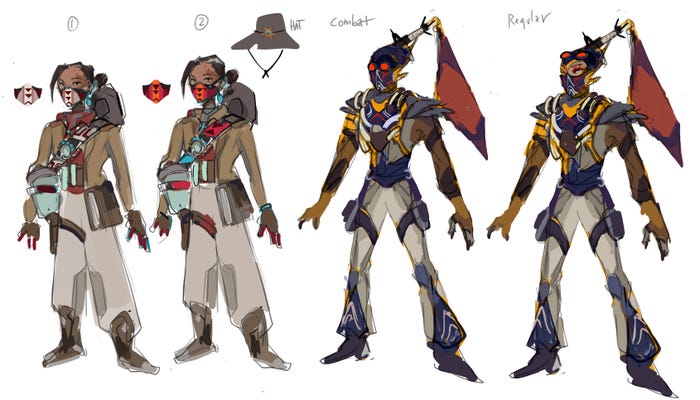
Please check out The Foglands and wishlist it on the platform of your choice. We're really excited about what we've been building and can't wait for you to see.
Read more about:
BlogsYou May Also Like